Andrzej Wajda Quotes & Sayings
31 most famous Andrzej Wajda quotes and sayings. These are the first 10 quotes we have for him. He's a 99 year old Polish director born on Mar 6, 1926.
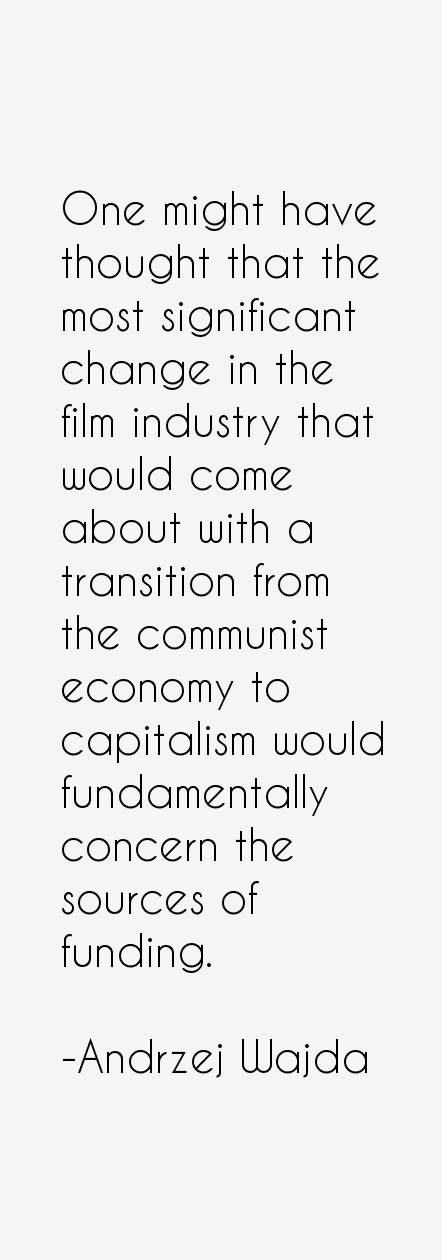
“One might have thought that the most significant change in the film industry that would come about with a transition from the communist economy to capitalism would fundamentally concern the sources of funding.”
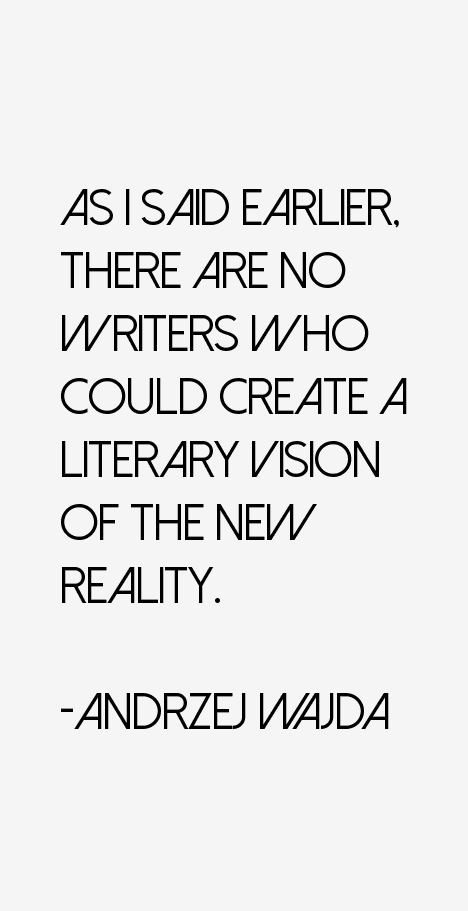
“As I said earlier, there are no writers who could create a literary vision of the new reality.”
“Also a great part of Polish industry proved to have existed only to support the Soviet military industry, and it became superfluous and incapable of being transformed into anything else. We did not foresee that or the magnitude of these phenomena.”
“In the same period, Polish literature also underwent some significant changes. From social-political literature, which had a great tradition and strong motivation to be that way, Polish literature changed its focus to a psychological rather than a social one.”
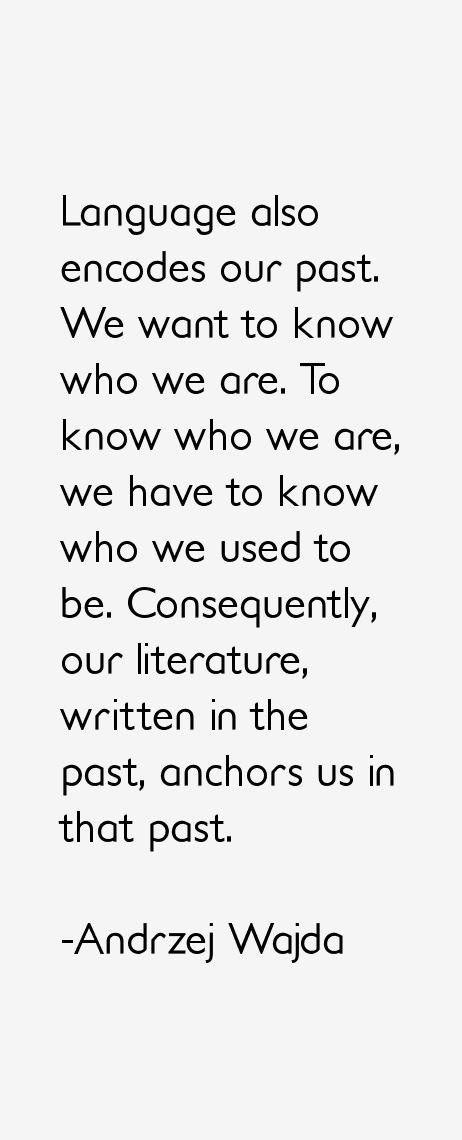
“Language also encodes our past. We want to know who we are. To know who we are, we have to know who we used to be. Consequently, our literature, written in the past, anchors us in that past.”
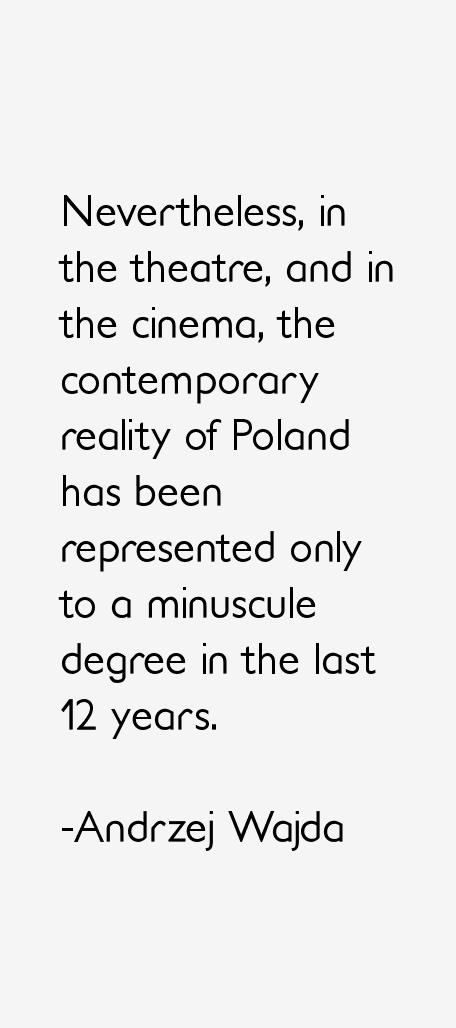
“Nevertheless, in the theatre, and in the cinema, the contemporary reality of Poland has been represented only to a minuscule degree in the last 12 years.”
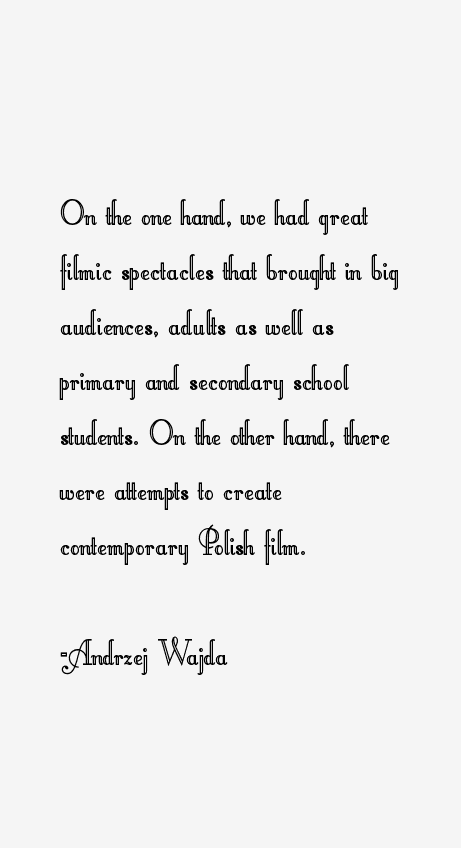
“On the one hand, we had great filmic spectacles that brought in big audiences, adults as well as primary and secondary school students. On the other hand, there were attempts to create contemporary Polish film.”
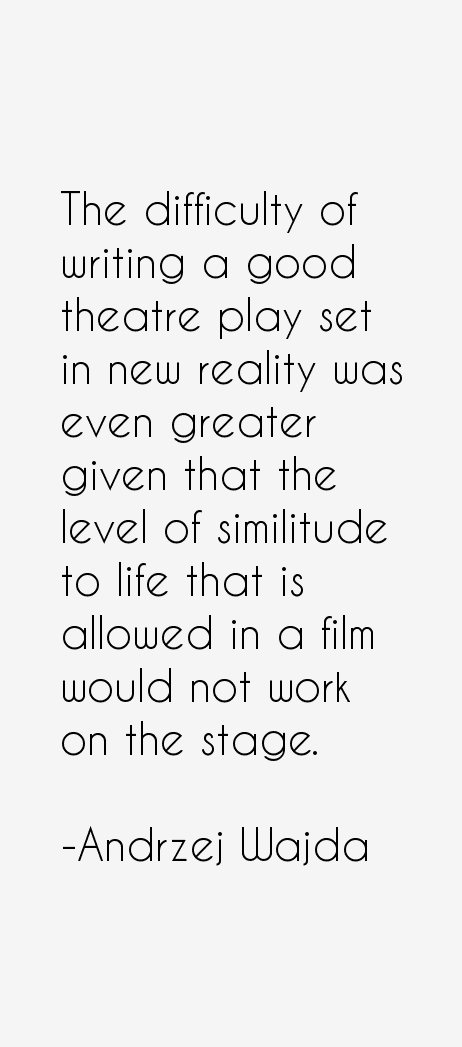
“The difficulty of writing a good theatre play set in new reality was even greater given that the level of similitude to life that is allowed in a film would not work on the stage.”
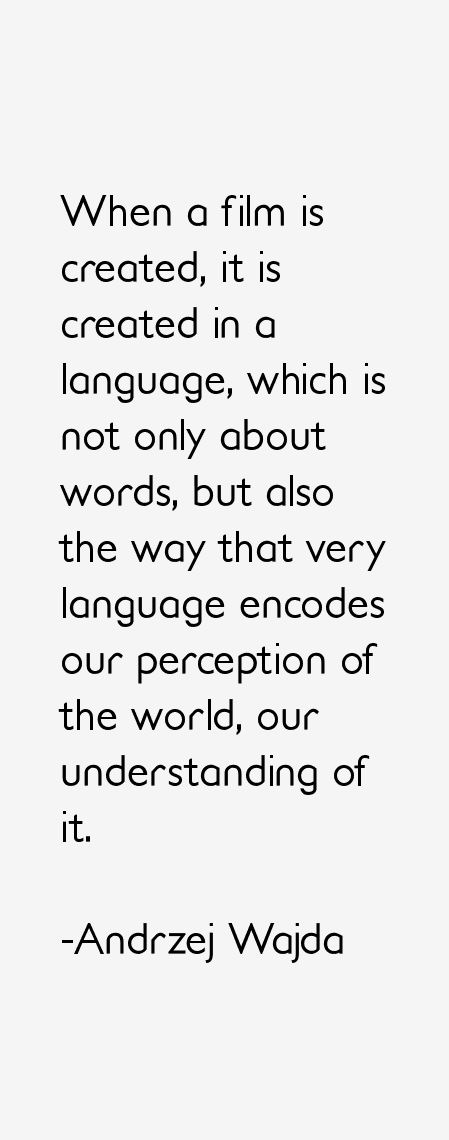
“When a film is created, it is created in a language, which is not only about words, but also the way that very language encodes our perception of the world, our understanding of it.”
“The difficulty with the present state of affairs is that there is no legislation on the sources of funding for the Polish film industry. There is no legislation concerning filmmaking. And, there is no legislation on television that would be beneficial to filmmaking.”
Andrzej Wajda Quotes Rating
No Ratings Yet
Leave A Comment
























